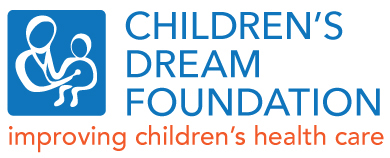 On any given school day trying to wake up your teenager for 7:30 AM class is a difficult task. Come Saturday, your teenager is exhausted from late nights and early mornings and so he or she may arise finally sometime around lunch, in an effort to make up for lost sleep from the week before. Yet even with two weekend days of luxurious sleep until midday, waking up with the sun on Monday still seems to be painful. This series of events is played out all across the nation, but some communities are trying to make a change.
On any given school day trying to wake up your teenager for 7:30 AM class is a difficult task. Come Saturday, your teenager is exhausted from late nights and early mornings and so he or she may arise finally sometime around lunch, in an effort to make up for lost sleep from the week before. Yet even with two weekend days of luxurious sleep until midday, waking up with the sun on Monday still seems to be painful. This series of events is played out all across the nation, but some communities are trying to make a change.
We are just beginning to understand the mechanics and utility of sleep. There are estimates that over 60% of teens are sleepy during the day and that less than 1 in 6 teens are getting the recommended 9-¼ hours of sleep each night. Lack of sleep has been implicated in many health problems such as depression, mood disorders, and attention deficit disorder. Proper sleep is required for growth because many hormones are secreted in a circadian rhythm that can be disrupted by irregular or poor sleep cycles. Compounding the problem is that the natural sleep cycle shifts to falling asleep later in the evening and waking later in the morning during adolescence. Most teenagers try to combat this with caffeine, a very effective stimulant that can further aggravate sleep irregularity. Finally, the weekend sleep-ins further damages the sleep cycle by not allowing an earlier cycle to take effect. Drowsiness can be a serious problem at work and on the roads. Staying up all night has the equivalent motor effect of being drunk.
Some communities, recognizing that teens naturally sleep later and so will benefit from a later school start time are doing just that. Current start times for high schools were developed around the bus schedules of the entire school district. The baseline assumption is that the younger kids need more sleep and more help in the morning, so the older kids need to be delivered to school first. While it is correct that younger children require more sleep, they also go to sleep earlier. School boards looking to acknowledge teen’s natural tendencies have rearranged bus schedules so that high schools have the latest starting time. It is unclear what effects these later start times are having. Opponents claim it merely pushes back the whole day, or that activities need to be shortened in the afternoon. Limited studies have shown that teens go to bed at the same time, so they end up sleeping more. Ultimately, it would be expected to have a positive effect on school performance, but that has yet to be convincingly demonstrated.
As we continue to expand our knowledge of the benefits of sleep, it is clear that most adolescents do not get enough. We know that sleep deprivation has negative consequences in and out of the classroom. Current school schedules are based on logistic and economic reasons. The “school start” debate is just beginning as educators and community leaders start to appreciate the accumulating evidence on sleep and teens. More information can be found at the National Sleep Foundation website: www.sleepfoundation.org.
Contributed by Daniel Rauch, MD, Director, Pediatric Hospitalist Program, NYU School of Medicine.
